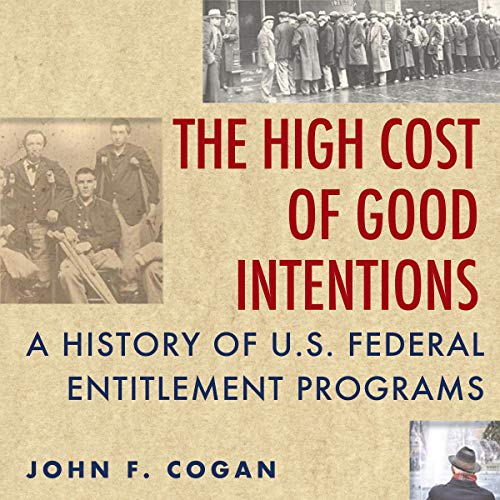Federal entitlement programs are strewn throughout the pages of U.S. history, springing from the noble purpose of assisting people who are destitute through no fault of their own. Yet as federal entitlement programs have grown, so too have their inefficiency and their cost. Neither tax revenues nor revenues generated by the national economy have been able to keep pace with their rising growth, bringing the national debt to a record peacetime level.
The High Cost of Good Intentions is the first comprehensive history of these federal entitlement programs. Combining economics, history, political science, and law, John F. Cogan reveals how the creation of entitlements brings forth a steady march of liberalizing forces that cause entitlement programs to expand. This process – as visible in the 18th and 19th centuries as in the present day – is repeated until benefits are extended to nearly all who could be considered eligible, and in turn establishes a new base for future expansions. His work provides a unifying explanation for the evolutionary path that nearly all federal entitlement programs have followed over the past 200 years, tracing both their shared past and the financial risks they pose for future generations.
The book is published by Stanford University Press. The audiobook is published by University Press Audiobooks.
“Finally someone has written a comprehensive history of America’s efforts to help worthy groups of Americans: the elderly, the veteran, the less fortunate, and the very young.” (Bill Bradley former U.S. senator)
“This book should be read by anyone interested in addressing our nation’s fiscal and economic future, regardless of their political persuasion.” (Sam Nunn former U.S. senator)
“This is an important and splendid book.” (Alan Greenspan former Chairman of the Federal Reserve of the United States)








Reviews
There are no reviews yet.